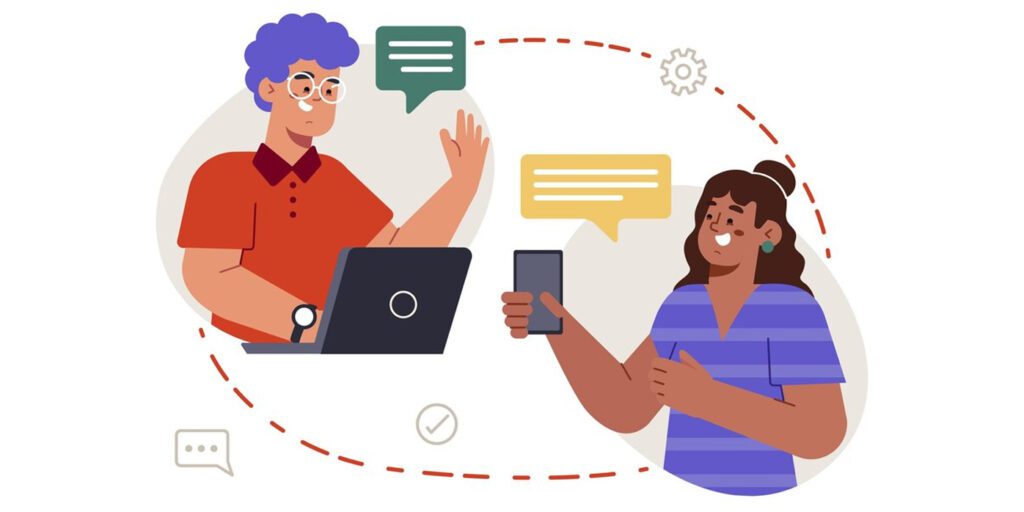8 Important Tips for learning English Language

Learning English is an interesting pursuing that provides opportunity for both personal and professional development. With time and dedication, mastering this global language provides opportunities for communication, cultural interaction, and unlimited possibilities.
You can improve your vocabulary, fluency, and confidence through engaging your in English on a regular basis, setting attainable objectives, and utilizing numerous learning resources.
Remember that each step you make gets you closer to fluency and a world of new connections. Allow your love for studying to drive your development, and enjoy the wonderful experience of mastering English.
How to set goals in English learning
Table of Contents
ToggleSetting goals in English study is critical to progress. Begin by setting specific goals, such as increasing vocabulary, grammar, or fluency. Break down goals into doable tasks, such as learning a particular number of new words per week or practicing speaking for a set amount of time each day.
Assess progress on a regular basis and make modifications to goals. Stay motivated by celebrating your accomplishments and requesting assistance from peers or linguistic resources. Consistency and dedication are essential for success in learning English.



Importance of goal-setting in English learning
Goal-setting is critical in English learning since it provides guidance or incentive. Setting defined targets allows students to focus their efforts more efficiently, whether they are improving vocabulary, grammar, or communication skills. Goals provide students a sense of purpose and progress, keeping them interested and devoted to their language journey.
They allow students to monitor their progress, identify areas for growth, even understand achievements along the way. Finally, goal-setting enables people to become fluent and proficient in English through systematic and intentional learning. You can read more blogs about graphic design by clicking on this link.
Examples of specific language goals
- Vocabulary Expansion
Learn 20 new words related to business terminology every week.
- Grammar Mastery
Practice using irregular verbs correctly in sentences daily for one month.
- Listening Comprehension
Listen to English podcasts or news programs for 20 minutes each day, then explain the most important points.
- Confidence Building
Speak in English during group discussions or presentations at least once a week to increase your speaking confidence.
How to Immerse Yourself in English Learning
To truly immerse oneself in English, include it in your daily routine. View English films and television shows, listen to English music and podcasts, and read English books and articles. Change the language set on your devices and networking platforms to English. Engage in interactions with native speakers, either in person or via language exchange services.
Join English-speaking communities or clubs and take part in events like debates or reading clubs. Practice thinking and dreaming in English. Finally, define precise language goals to stay focused and track progress. Immersion can greatly improve your knowledge of English through regular use and practice.

Surrounding yourself with English media and resources
Surrounding yourself with English media and resources is essential for language immersion. Begin with watching English-language films, television series, and documentaries. Listen to English music, podcasts, and radio programs. Read English-language newspapers, periodicals, novels, and blogs. Engage with English-language websites, social media, and forums. You can read more blogs about IELTS Reading skill by clicking on this link.
Use language-learning applications and online courses. Joining groups, attending events, or engaging in foreign exchange efforts can help you become fluent in English communities. The more exposure you have to English media or resources, the quicker your language abilities will improve.
Strategies for creating an English-speaking environment
Creating an English-speaking environment can be beneficial for language learners to immerse themselves and improve their proficiency.
Develop language exchange relationships in which participants agree to only speak English for a set period of time. This could entail finding a native English speaker ready to study your language, or vice versa.
Join or start English-speaking clubs or meetings in your area where people can chat in English. This might be tailored to specific interests, such as book clubs, gaming groups, or cooking lessons.
Practice English learning regularly.
Regular practice is essential for English learning. Create a consistent schedule using various resources, such as textbooks, apps, and language exchange networks. Concentrate on speaking, vocabulary, grammar, and immersion through music, movies, and literature. Seek feedback, set goals, and maintain motivation. Language skills can be improved with consistent daily practice.


Importance of consistent practice in language acquisition
- Retention and Memory
Regular practice helps to reinforce learning and memorize new vocabulary, grammar rules, or sentence structures. Consistency avoids forgetting and ensures that knowledge is ingrained.
- Skills Development
Language learning involves developing various skills such as listening, speaking, reading, and writing. Consistent practice allows learners to hone these skills gradually, leading to improvement over time.
- Confidence Building
Regular practice helps learners gain confidence in utilizing the language. Regular exercise makes students more inclined to engage in conversations, write comfortably, and express themselves effectively.
Daily practicing routines and strategies
To build effective daily practice routines and techniques, start by identifying specific goals based on your objectives. Break down these goals into manageable activities and set out definite time slots for each practice session. Incorporate a variety of exercises to keep people interested and to work on different abilities related to your endeavor.
Consistency is essential; commit to practicing every day, even if it’s for a short time. Use tactics like spaced repetition to improve memory and mastery over time. Stay versatile and change your routine as needed to overcome obstacles and improve performance.
English learning Focus on speaking and listening
Employ the ability to speak and listen while learning English to ensure effective communication. Engage in daily discussions, whether with native speakers, English-learning language partners, or online language exchange platforms. Active listening involves paying attention to tone, pronunciation, and context.
Use materials like podcasts, audiobooks, and language learning applications that focus on spoken English. Participate in speaking clubs or online forums to improve your confidence and fluency.

Importance of oral communication skills
The main purpose of language acquisition is to communicate effectively with others. Oral communication skills enable students to participate in real-life interactions such as talks, discussions, and talks, both in academic and professional environments.
Practicing oral communication helps students enhance their English fluency. Regular speaking activities help learners become more at ease with the language, allowing them to express themselves more freely and confidently.
Developing oral communication skills requires both speaking and listening. Engaging in conversations and discussions with others improves learners’ listening comprehension abilities because they must understand what others are saying and respond properly.
Activities and methods to improve speaking and listening abilities
- Conversation Circles
Organize or join conversation circles where students can debate various English themes. This provides an opportunity for consistent speaking practice in a supportive setting.
- Language Exchange Partners
Find a language exchange partner who speaks English natively or fluently. You can alternate between speaking English and your partner’s native language, providing reciprocal language practice and feedback. exposure.
- Watching Movies and TV Shows
Watch English-language films, television shows, or YouTube videos with subtitles if necessary. Pay attention to the dialogue and attempt to follow along without leaning too heavily on subtitles. This can boost both listening comprehension and speaking fluency.
English learning builds vocabulary
There are various excellent ways to expand one’s vocabulary in English. Reading broadly across genres introduces students to new words in context. Actively engaging with the content, such as by noting uncommon words and researching their meanings, improves retention. Using vocabulary applications, worksheets, and word games creates interactive learning experiences. Consistent practice and immersion in English-speaking situations improve vocabulary learning.


Strategies for expanding vocabulary effectively
Reading exposes you to a wide range of words in context. Choose various genres, including fiction, non-fiction, newspapers, magazines, and online articles. Whenever you encounter an unfamiliar word, take the time to look it up, understand its meaning, and try to use it in your own sentences.
Maintain a notebook or digital document where you jot down new words along with their definitions, example sentences, and synonyms. Regularly review this journal to reinforce your learning.
Practice using new words in sentences or conversations to ensure you understand their nuances and appropriate usage.
Resources for English learning new words and phrase
There are various resources available to help you learn new English words and phrases. Online platforms such as Vocabulary.com, Memrise, and FluentU provide interactive courses and tests based on your skill level. Reading widely, using applications like Anki for flashcards, and participating in language exchange groups can all help you learn more vocabulary.
Master Grammar and Sentence Structure
Mastering grammar and sentence structure is essential for efficient communication. It entails understanding the principles of language and applying them skillfully to convey meaning simply and precisely.
Grammar includes elements such as parts of speech (nouns, verbs, adjectives, etc.), sentence structure (subject-verb agreement, punctuation, etc.), and syntax (word order).
A well-structured paragraph is coherent and cohesive, with each sentence adding to the overall flow and unity of the text.

Importance of understanding grammar rules
Understanding grammatical rules is important for a variety of reasons. First, it guarantees that communication is clear and precise. People who obey grammatical norms can effectively explain their views, reducing the chance of ambiguity or misunderstanding.
Mastering grammar improves credibility and professional. Proper grammar usage shows competence and attention to detail, which can improve how others view one’s writing or speaking.
Understanding grammar principles increases language ability and fluency. It provides a foundation for meaningful cognitive organization and structured expression.
Techniques for improving grammar skills
Spend time studying extensive grammar guides or textbooks. These materials help to clarify various grammar rules, as well as provide practice exercises.
Developing language takes constant practice, just like any other ability. Set aside time each day to do grammar exercises, such as worksheets, quizzes, or online courses.
Analyze well-written texts to discover grammar patterns and tactics employed by skilled writers. Pay attention to sentence structure, punctuation, and word choice to understand how grammar rules are used in context.
Connect with Native Speakers
Engaging with native speakers is highly beneficial for English learners. It provides authentic exposure to colloquialisms, subtleties, and cultural situations. Interacting with native speakers improves language fluency, confidence, and understanding skills. Conversations help learners understand normal speech patterns and idiomatic idioms, resulting in a greater understanding of the language.

Benefits of engaging with native English speakers.
Native speakers provide actual examples of how English is spoken in everyday contexts, including idiomatic phrases, slang, and colloquialisms.
Regular interaction with native speakers allows learners to emulate natural pronunciation and intonation patterns, resulting in improved spoken English skills.
Communicating with native speakers improves learners’ listening comprehension skills as they become acclimated to various accents, speeds, and speech patterns.
How to Find Language Exchange Friends or Conversation Groups
- Social media platform
Join language exchange groups on platforms such as Facebook, Reddit, and Meetup. These clubs regularly host language exchange events, meetups, and online sessions where you may practice speaking with native speakers.
- Local Language Exchange Events
Check to see if there are any language exchange or meeting events in your region. Universities, cultural institutes, and language schools frequently provide speech exchange events or discussion clubs where you can practice speaking with native speakers.
- Attend Cultural Events
Attend cultural events, workshops, or meetings in your neighborhood that may include English speakers. Engage in conversations with native speakers and demonstrate your interest in language exchange.
Use Technology to Enhance English Learning
Technology has the potential to completely transform English education. Online programs such as Duolingo and Rosetta Stone provide interactive lessons, making learning more enjoyable and accessible. Tandem and other language exchange apps connect learners with native speakers for real-world practice.
Educational websites such as Khan Academy and Coursera offer extensive English courses that cover grammar, vocabulary, and comprehension. With tools like Grammarly and language learning podcasts, students have a wealth of resources to properly learn English.
Recommended language learning apps and online resources
Provides individualized language classes designed by language professionals that focus on practical conversation skills.
Uses spaced repetition and mnemonic strategies to help students memorize vocabulary successfully.
A language exchange tool that connects learners with native speakers for conversation practice using text, audio, or video chats.
Conclusion
Finally, learning English opens up a world of options. It’s more than just learning grammar rules or recalling language; it’s also engaging with people from different cultures, accessing a plethora of information, and advancing personal and professional development. While it may appear overwhelming at times, endurance and dedication are essential. Remember that every step toward fluency takes you closer to a more connected and satisfying life. So, embrace the trip, enjoy the process, and let your desire to learn lead you to English competence.
